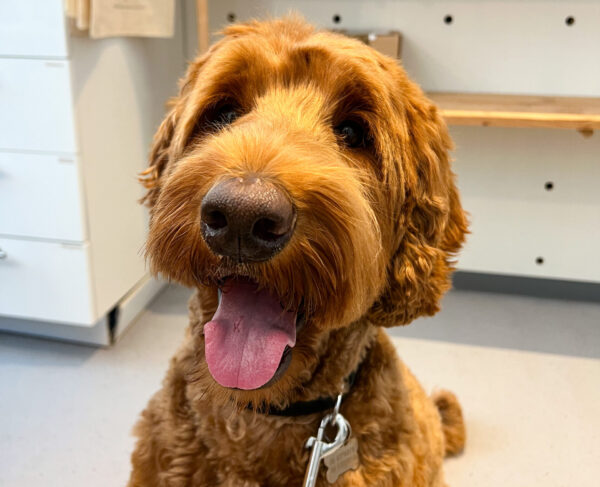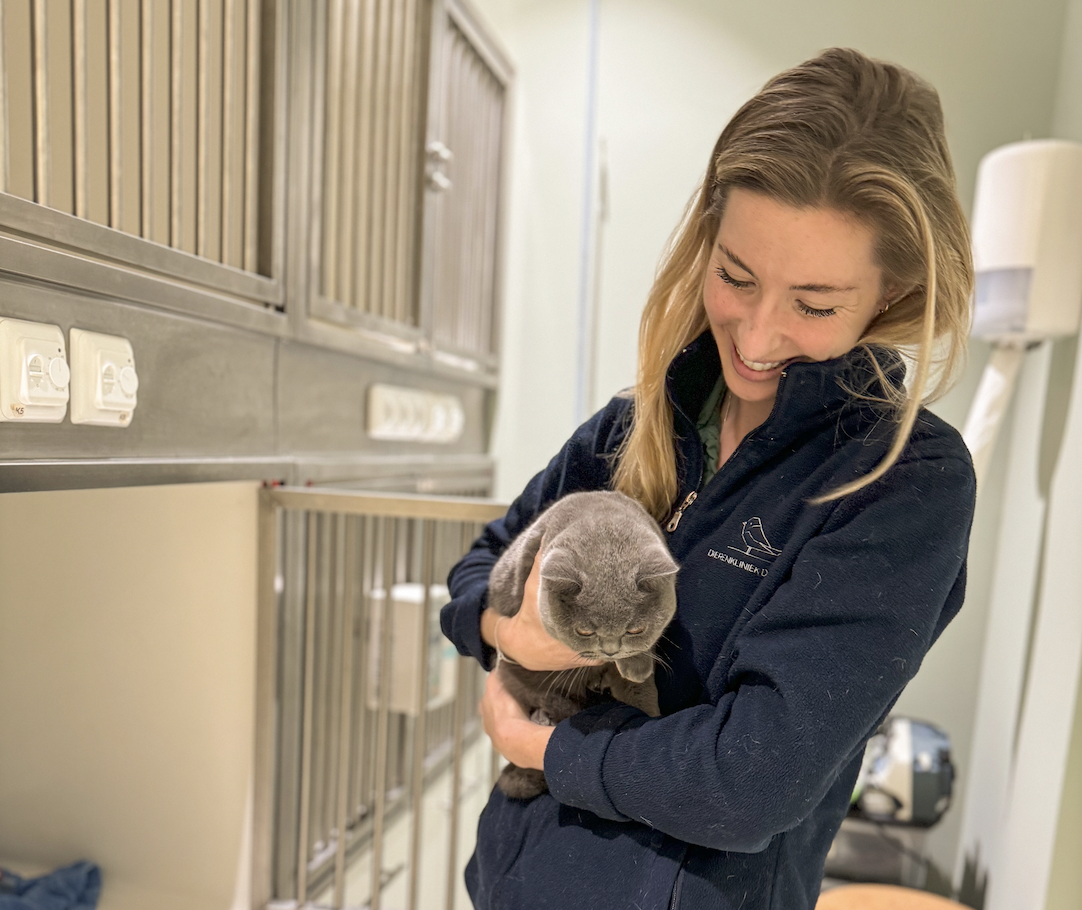Insure your pet!
Medical care is costly, whether for humans or animals. It is important to be fully aware of this when acquiring a pet. Fortunately, there are an increasing number of pet insurance options available, ensuring that animals can receive the medical care they deserve. Explore the possibilities for pet insurance at www.verzekerjehuisdier.nl or ask for our advice.

When is a situation considered urgent?
If you need to take your pet to the veterinarian, there is usually no immediate urgency. However, there are exceptions: cases where we advise you to come as soon as possible, even in the evening or at night!
During the week we are open until 19:00 and on Thursdays even until 21:00. Outside these times we referer you to the MDC Emergency and Specialist Clinic in Amsterdam. They can be reached via 020-7400600Below you will find a (not complete) list of situations that are always considered emergencies. If you are unsure whether something is an emergency, always get in touch!
- Animals that are bleeding heavily after an accident or bite wound
- Animals that are short of breath.
- A male cat that is trying to urinate but is producing little or no urine.
- A dog that is continuously trying to vomit but is not bringing up any vomit
- A rabbit or guinea pig that has not eaten anything for more than 12 hours.
- Animals that are acutely paralyzed
- Animals having an epileptic seizure that lasts longer than 5 minutes or where one seizure is immediately followed by another.
I am going on vacation and I am bringing..
When you go on vacation, arrangements must of course be made for your pet(s). Whether they go with you or stay at home, it is important to make preparations in time for both cases. Animals staying at a kennel, for example, require mandatory vaccinations that often need to be given at least 21 days in advance.
Animals traveling abroad always need a valid rabies vaccination that was administered at least 21 days before departure, a properly completed passport, and a functioning microchip. Additionally, there are various diseases abroad that are transmitted by parasites (ticks and sandflies). Therefore, it is important to administer a good antiparasitic treatment. Call us or come by for advice on this.
Different countries have additional travel advice. Read all about it at: https://licg.nl/31D/praktisch/reizen-en-vakantie.html#vakantie


Microchip your pet.
Every year, many animals go missing after escaping. Fortunately, these animals are often found again. In order to quickly return them to their owner, it is important that these animals are microchipped and registered. With proper registration, direct contact can be made with the owner, who is often overjoyed that their pet has been found.
Especially many cats are still not microchipped. As a result, only about 14% of found cats are reunited with their owner. Not all dogs are microchipped and registered either, although this has been mandatory since 2013.
A microchip is a small microtransponder (about the size of a grain of rice) that is placed under the animal's skin. The chip number is unique and, after registration, is stored in a database.
Check the rates to see what it costs to have your pet microchipped

